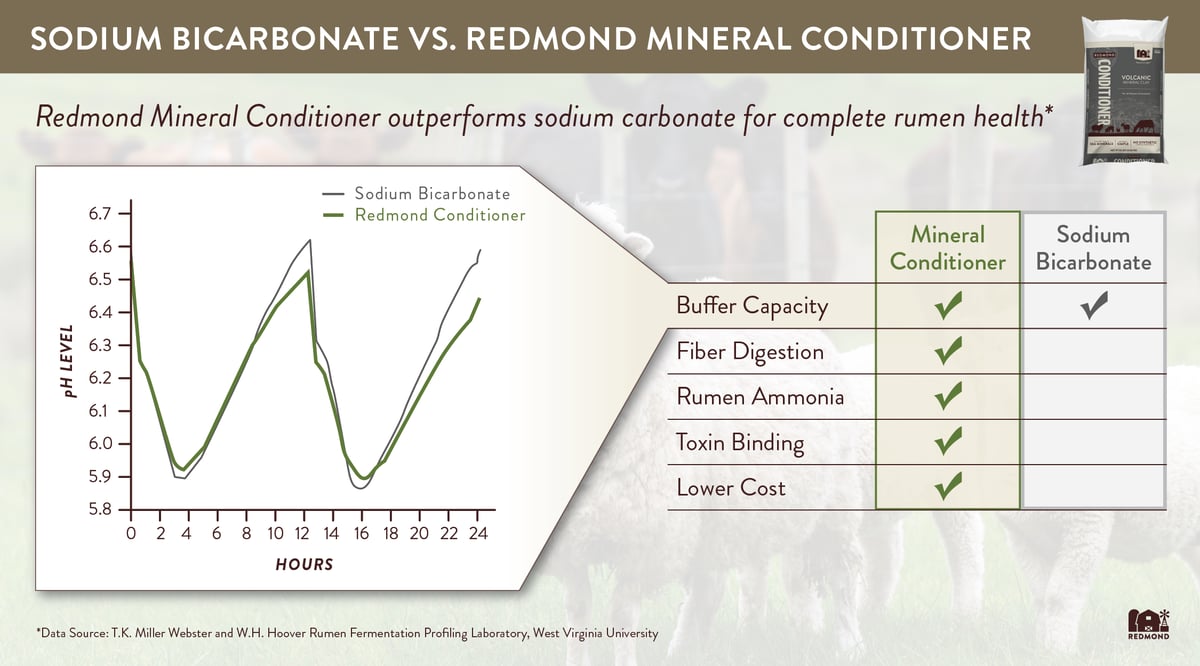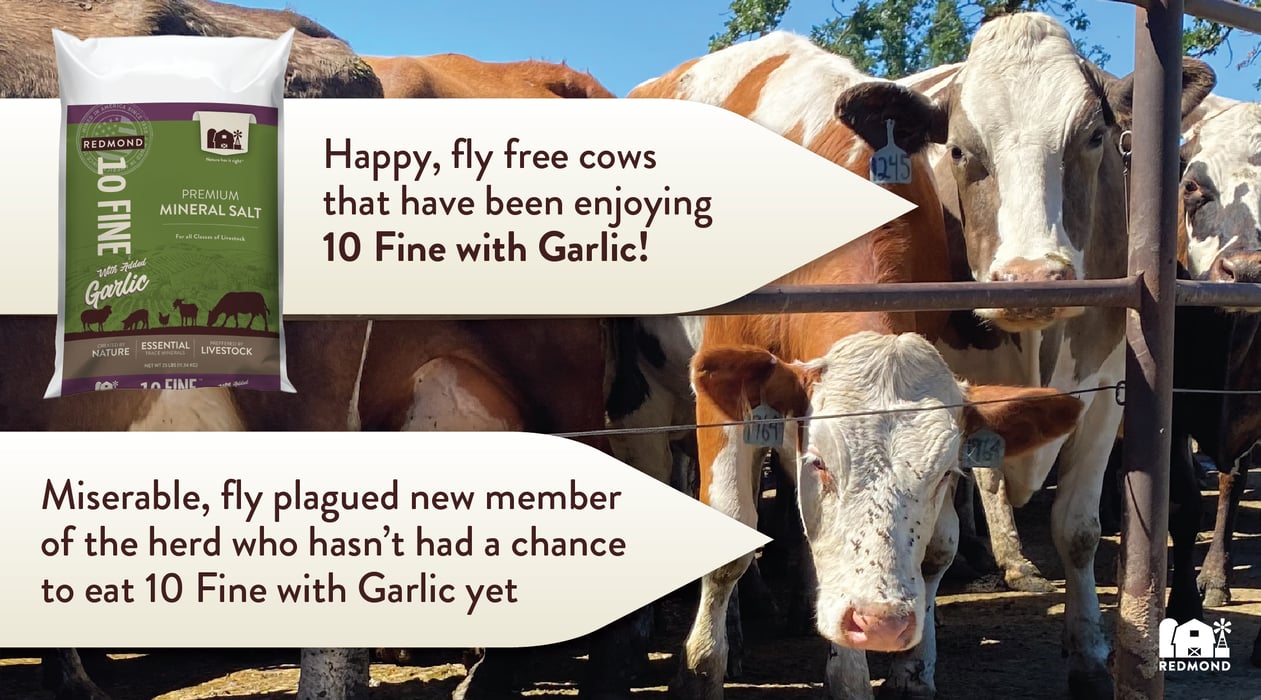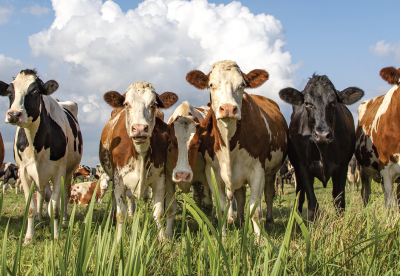When it comes to greenhouse gas emissions, agriculture can be the solution...not the problem. Conversations about emissions typically center on 3 main greenhouse gases (GHG): carbon dioxide, nitrous oxide, and methane. There are many natural and man-made sources releasing these gases into our atmosphere. Let’s take a look at how the regenerative agricultural community is in the unique position to use our land, livestock, and vehicles to reduce and even sequester (store) GHG.
Land
Healthy soil has the ability to naturally capture and sequester GHG directly from the atmosphere and from decaying organic matter contained in the soil. Soil can be nurtured to increase this ability and to better support bacteria colonies that metabolize those gases. Living plants also store and use greenhouse gases as they grow.
Volcanic Soil Amendments
Using volcanic soil amendments (containing weathered volcanic rock dust) greatly increases soil’s ability to store carbon. An ongoing UC Davis study is discovering that weathered volcanic material not only efficiently traps carbon within the soil, it also delivers a wide range of minerals that plants need to thrive.
Benefits of Soil Amending:
- Improve soil health
- Increases plant yields
- Increases soil’s ability to store carbon
For over 50 years, farmers have grown more productive, delicious, nutrient dense crops with Redmond Minerals soil amendments. We are proud to offer mixes containing our volcanic bentonite clay and over 60 trace minerals.
- Click to see how Redmond's soil program has helped farms become more profitable with our amendments
Conservation Tillage
More and more farmers are reaping the benefits of switching from conventional tillage to conservation/reduced tillage or no tillage. Leaving crop residues on your field will not only protect your carefully cultivated soil, but also increase the amount of sequestered GHG. Just take a look at this side by side comparison of a bare field vs. a field with reduced tillage:
The 1st video shows a planted field of corn on corn no-till with debris blowing in 40 mph winds with gusts up to 60. The 2nd video is a planted field of corn on tilled bean stubble in the same windy conditions 1 mile away. #plant18 #servitech #erosion #stewardship pic.twitter.com/3DCqN1xHgO
— Clark Poppert (@Clark_Agronomy) April 30, 2018
Benefits of Conservation Tillage:
- Better soil moisture capture
- Reduced erosion (through wind and weather)
- More organic matter in your soil
- Fewer passes on your land (reduced fuel and labor costs)
- Creates a GHG sink (exposed soils naturally release GHG into the atmosphere)
Avoid Over-Applying NPK Fertilizers
Over-applying nitrogen-phosphorus-potassium (NPK) fertilizers can have adverse side effects for your land as well as the environment. Heavy handed NPK applications upset the microbe balance in your soil and create an overabundance of nitrous oxide. These excess nutrients leak out into the air, ground water, your ponds and irrigation channels, local rivers and streams, and eventually lakes and oceans. This nutrient pollution creates toxic algae blooms, fish kills, and even dead zones in local and national water sources.
Looking beyond NPK and providing your soil with a more expansive mineral profile will produce short term and long term benefits for your farming operation.
Benefits of Reducing NPK Usage:
- Healthier soil microbe colonies
- Helps your plants efficiently use nitrogen already in the soil (see nitrogen cycle)
- Balanced soil nutrition
- Less financial and product waste
- Reduces nutrient pollution
- Reduces soil GHG emissions
Cover Crops/Agroforestry
Strategically planting cover crops and trees with your crops is an extremely effective way to help you get the most from your land. Cover crops are typically in the legume family and help store nitrogen within the soil for your main crops to use. Agroforestry is the practice of planting trees in specific locations on your land. Check out the many agroforestry methods that are beneficial to both crop production and livestock.
Benefits of Cover Crops/Agroforestry:
- Weed prevention
- Improve soil fertility
- Better nitrogen utilization
- Reduce soil erosion
- Reduce water runoff
- Harmful pest prevention
- Reduce evaporation from your soil
- Add biomass to your soil
- Attract helpful pollinators
- Provides better shade for livestock and water sources
- Sequesters greater amounts of GHG
Composting
As organic matter breaks down and decomposes, it releases GHG into the atmosphere. When properly managed, this “black gold” can be fed back into your soil and reduce off gassing into the atmosphere. Click to walk through some questions from Oregon State University to see if on site/local composting is right for your farming operation.
Benefits of Composting:
- Improves soil structure
- Increases soil microbial activity
- Helps water and nutrient holding capacity
- Reduces GHG emissions
Livestock
Ruminant livestock are often blamed for rising GHG levels. Fortunately there are some very simple and effective ways to improve ruminant health and increase their productivity, while simultaneously reducing methane emissions.
Support Rumen Health
The fermentation within the rumen naturally creates methane gases, which an animal releases when these gases build up. Penn State’s Ag Extension has found that increasing the feed efficiency in the rumen diverts more energy toward milk and meat production, and away from methane production.
Some livestock operations use simple sodium bicarbonate for rumen buffering, but that only helps with 1 piece of the rumen puzzle. Redmond Mineral Conditioner buffers rumen just as well as sodium bicarbonate plus maintains healthy ammonia levels, improves fiber digestion, supports microbe health, binds to toxins, and increases feed efficiency.

Benefits of Supporting Rumen Health:
- Improves feed efficiency
- Supports healthy gut microbes
- Balances pH and ammonia levels
- Toxin binding
- Reduces methane output of your herd
Offer Natural Feed Additives
Some operations get a little carried away with feed additives as they try to reduce their herd’s methane output. It is important for the health of the animals and farming productivity to not drastically alter the environment of the rumen. Luckily, agricultural scientists are finding delicious and natural feed additives that improve animal health, increase milk production, and lower methane emissions.
Garlic is a natural methane reducer, and a natural fly repellant. Try Redmond 10 Fine with Garlic and watch your herd go from miserable to happy, just from eating their minerals!

Cattle operations in Australia have even discovered that a certain species of seaweed (asparagopsis) inhibits a specific enzyme and reduces methane output by 80% (when it comprises 3% of an animal’s diet).
Benefits of Natural Feed Additives:
- Increases feed efficiency in the rumen
- Diverts more energy towards milk and meat production
- Reduces flies (garlic)
- Lowers methane emissions
Manure Management
Piles of uncovered manure are not just unpleasant for you and your animals, but also for the environment. The University of Nebraska Lincoln has some very helpful tips on how to get the most from your manure, such as: surface covers (or deep bedding), proper aeration, digesters, and other additives.
Benefits of Manure Management:
- Fewer flies for you and your herd
- Reduces unpleasant smells
- Produces valuable compost
- Nutritionally efficient farming (keep the nutrients you have invested in, on your land)
- Reduces GHG emissions
Responsible Antibiotic Usage
Under the guidance of your vet, only offer antibiotics to your animals for necessary disease treatment. Using antibiotics to promote growth can unnecessarily upset the microbe balance in their rumen. This practice also reduces the amount of helpful microbes in their manure that are necessary for decomposition, and harms essential insects (like dung beetles).
Benefits of Responsible Antibiotic Usage:
- Reduces unnecessary vet costs
- Healthier gut microbe colonies
- Increase manure decomposition
- Supports helpful manure based insects
- Reduces methane off gassing from manure
Vehicles
Last but not least, farming vehicles can cash in on rebates and incentives to support the cause of reducing GHG.
Take Advantage of Cleaner Fuel Incentives
There are many programs out there offering incentives for converting vehicles to cleaner burning fuels. Take stock of your farming vehicles and find out which ones would qualify for cleaner fuel conversions. Click to see the current alternative fuel offers for your state.
Give Redmond Minerals a call today at  to learn more about our amazing agricultural products!
to learn more about our amazing agricultural products!
© 2024 Redmond Minerals Inc.

